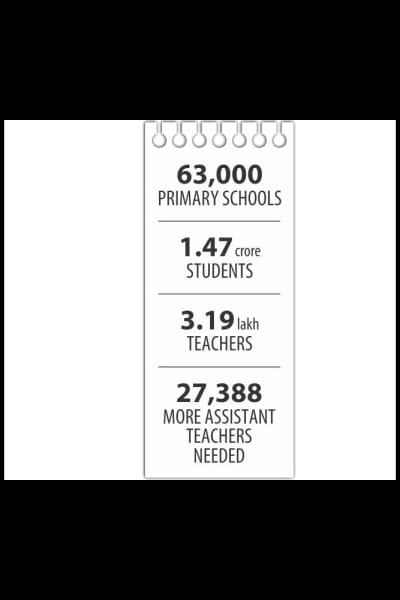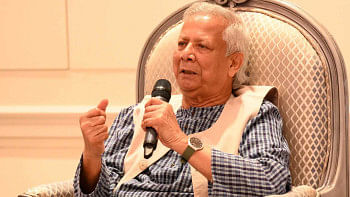Teacher shortage hits pry schools

Academic activities at government primary schools across the country are being seriously disrupted due to shortage of teachers.
Some 45,000 posts of schoolteachers are now vacant -- 17,615 for headmasters and 27,388 for assistant teachers, Primary and Mass Education Minister Mostafizur Rahman told parliament on February 9.
Although assistant teachers are filling in for the headmasters, the overstretched teachers find it difficult to concentrate on the class. This eventually affects the quality of education, said teachers and leaders of primary teachers' associations.
There are around 63,000 state-run primary schools in the country where more than 2.19 crore students are being taught by 3.22 lakh teachers. Of the total schools, 25,552 were nationalised in 2013.
Educationists have long been pointing out that shortage of teachers is a big hurdle to ensure quality education, and that the only way to overcome this is to recruit adequate qualified teachers.
Kohinur Khatun, headteacher of Ektarpur Government Primary School in Kaliganj upazila of Jhenidah, and two other teachers are taking care of their 230 students for months now.
"We have seven posts for teachers, but we are just the three of us at the moment. We actually had four teachers, but one of them is now working in another school on deputation. This has made our job even more difficult," Kohinur told The Daily Star yesterday.
Asked how they take care of everything, she said, "We are facing problems in carrying out academic activities, but we have no choice. The teachers take extra pressure as they need to hold classes. I also try my best to manage the classes."
She said the authorities repeatedly assured them of appointing teachers, but nothing actually happened. "Still my school is doing well."
Riaz Parvez, president of Bangladesh Government Primary Headteachers Association, said it was extremely difficult to ensure quality education with only one or two teachers.
“Things get really difficult when the headteachers go to the district or upazila education offices for official purposes. During those times, only two or three assistant teachers have to look after everything,” he said.
"Primary schools have four teachers on average. If one teacher attends training, falls sick or goes on leave, children's education suffers badly.”
About the crisis of headmasters, he said the headteachers played a vital role in almost every school activity -- from managing daily schedule and the staff to implementing academic calendar to monitoring co-curricular activities.
The assistant teachers filling in for the post often find it difficult to make many decisions, he added.
Every year, a huge number of posts fall vacant temporarily, but for a significant period, because of training, retirement, resignation and death, said officials from primary and mass education ministry.
Besides, many female teachers take maternity leave while others take leave for medical reasons or to perform hajj. It takes several months to fill the posts, they added.
Also, there was a long-standing wrangle over the qualification for teachers to be promoted to the post of headteacher. In fact, several cases have been filed over a government decision on recruiting headteachers, adding to the present crisis.
Contacted, Dr Md Abu Hena Mostofa Kamal, ndc, director general of the Directorate of Primary Education, said a process of recruiting teachers was underway.
"We're almost at the final stage of appointing around 4,000 teachers under freedom fighters' quota. Another 30,000 teachers will be recruited soon," he told The Daily Star.
He said the government was recruiting teachers from time to time, around 1.45 lakh in the last seven years alone. "But if we follow the student-teacher ratio as per our National Education Policy-2010, we will have to hire more teachers."
Under the 2010 policy, there should be one teacher for each 30 students by next year. As of December last year, the ratio is 1:38, according to the Directorate of Primary Education.

 For all latest news, follow The Daily Star's Google News channel.
For all latest news, follow The Daily Star's Google News channel. 



Comments